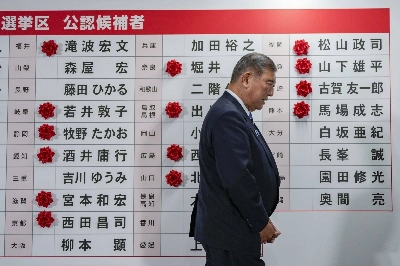Japan’s tax revenues hit a record of around ¥75.2 trillion ($524 billion) in the fiscal year that ended in March, surpassing government forecasts by ¥1.8 trillion. But the windfall still left questions over how Prime Minister Shigeru Ishiba will fund his cash handouts, a key election pledge.
The total marks a fifth consecutive year of record tax receipts, up from ¥72.1 trillion the previous year and ahead of the earlier estimate of ¥73.4 trillion, the Finance Ministry said Wednesday. Robust corporate earnings and persistent inflation were key drivers. Yet a ministry official explained that the government’s proposed handouts won’t be funded by money left over from last year’s account, but instead from what’s left in this year’s accounts.
Ishiba’s plan to distribute cash handouts of ¥20,000 per adult, — with additional money for children and lower-income households — is expected to cost around ¥3.5 trillion, according to his Liberal Democratic Party (LDP). How much Japan’s tax revenue will increase in the current year remains unclear, given the hit from U.S. tariffs and the income from other streams are also difficult to accurately predict.
















With your current subscription plan you can comment on stories. However, before writing your first comment, please create a display name in the Profile section of your subscriber account page.